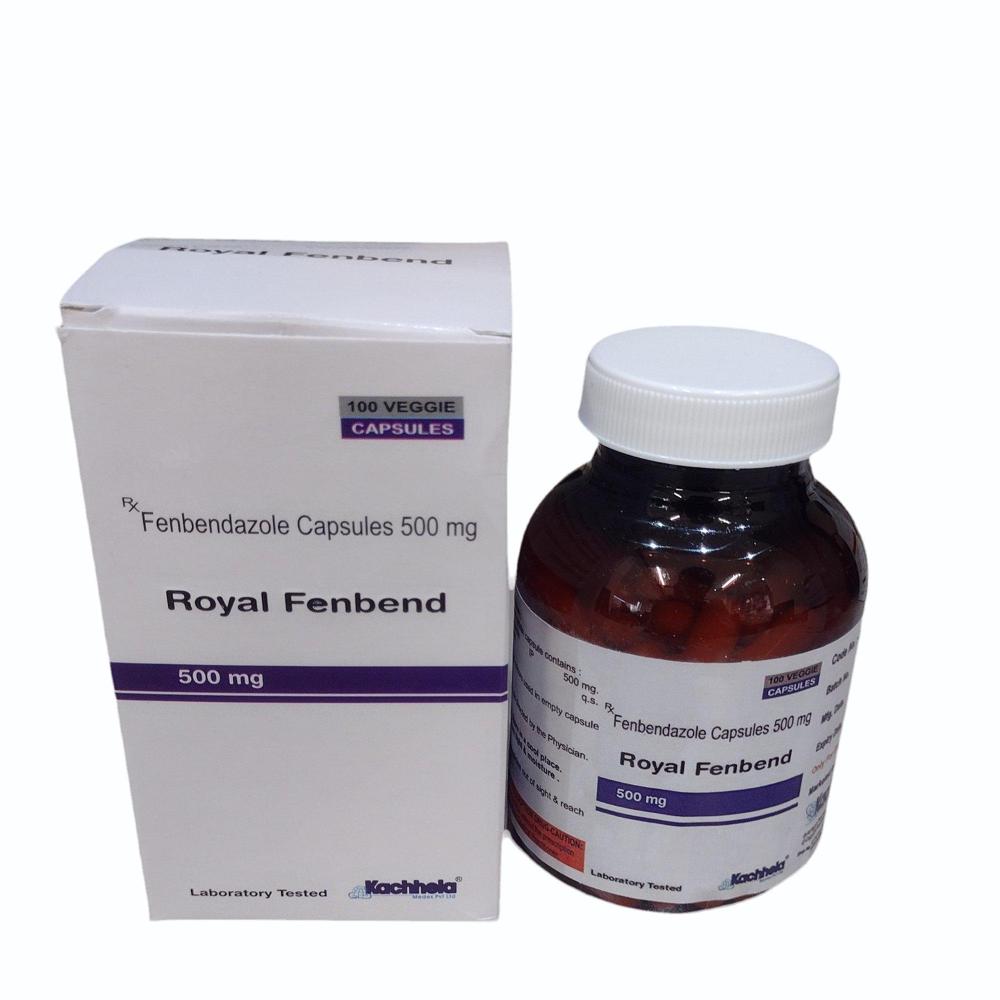fenbendazole: Potential Risks Explained
Wiki Article
Recognizing the Benefits and Uses of Fenbendazole in Vet Medication
Fenbendazole has established itself as a key anthelmintic in veterinary medication. Its ability to target different parasitic infections makes it a beneficial tool for vets. The medication's mechanism disrupts crucial mobile procedures in bloodsuckers, resulting in reliable treatment results. However, its security profile ranges varieties, requiring mindful consideration in its use. Recognizing these dynamics can lose light on fenbendazole's broader implications in veterinary treatment and ongoing research study right into its prospective past standard applicationsMechanism of Action of Fenbendazole

Usual Parasitical Infections Dealt With With Fenbendazole
A range of parasitic infections are effectively treated with fenbendazole, making it a versatile option in vet medication. This anthelmintic agent is specifically effective against nematodes, consisting of roundworms and hookworms, which generally affect pets and pet cats. It is likewise utilized for the treatment of cestodes, such as tapeworms, giving a broad spectrum of activity versus both kinds of intestinal bloodsuckers. Furthermore, fenbendazole is helpful in handling infections brought on by protozoa, specifically Giardia, which can result in gastrointestinal distress in pets. Its effectiveness encompasses treating particular lungworms in dogs and felines, addressing breathing health worries linked to these bloodsuckers. Overall, fenbendazole's capacity to target several parasitical varieties makes it a useful device in veterinary practice, making sure the health and wellness of pet dogs impacted by these typical infections.Safety and Efficacy in Different Animal Species
The security and efficiency of fenbendazole vary among various animal types, emphasizing the importance of species-specific considerations in vet medication. In pooches, fenbendazole is typically well-tolerated and efficient versus a series of intestinal bloodsuckers, consisting of roundworms and hookworms. For felines, however, its usage is much less usual and might need mindful application because of potential unfavorable reactions.In animals, such as cattle and sheep, fenbendazole demonstrates efficiency versus numerous endoparasites, contributing to improved wellness and productivity. The pharmacokinetics and potential side results can differ noticeably between species, demanding cautious evaluation by vets.
Equines likewise respond favorably to fenbendazole, particularly for treating strongyles and ascarids, though dosage and administration routes must be customized to their distinct physiology. As a result, recognizing these distinctions is vital for maximizing therapy results and making certain pet welfare across diverse varieties.
Administration and Dosage Standards
Appropriate administration and dosage standards are vital for maximizing the healing impacts of fenbendazole while minimizing possible negative effects. The dose typically differs depending on the types being treated, the certain problem, and the formula of fenbendazole used. fenbendazole capsules. For pet dogs and cats, have a peek at this website a typical dosage is 50 Home Page mg/kg body weight, provided as soon as daily for three successive days, yet veterinarians might change this based upon specific wellness analysesIt is very important to provide fenbendazole with food to improve absorption and lessen intestinal trouble. The medicine is available in different types, including granules and paste, enabling for flexible administration options. Monitoring the animal's action throughout and after treatment is a good idea to verify effectiveness and safety. In addition, vet advice is essential to figure out the ideal period of treatment based upon the kind of parasitical infection being addressed, ensuring excellent results for the pet's wellness.
Future Point Of Views and Research Study on Fenbendazole
Research on fenbendazole remains to progress, concentrating on its prospective applications past typical antiparasitic uses. Recent research studies have actually discovered its efficiency in dealing with numerous forms of cancer, particularly in vet oncology. Preliminary information suggest that fenbendazole might hinder the growth of lump cells and boost the effects of other chemotherapeutic agents.Moreover, researchers are examining its function in taking care of food poisonings in pets, highlighting its anti-inflammatory residential or commercial properties. The versatility of fenbendazole for different species questions concerning its security accounts and excellent dosing programs in diverse populations.
As rate of interest expands, there is a demand for complete scientific tests to establish evidence-based guidelines for these unique applications. Future research study may likewise investigate the devices behind fenbendazole's impacts, potentially leading the method for ingenious restorative strategies in vet medicine. The recurring expedition of fenbendazole might substantially improve treatment choices for different veterinary problems.

Frequently Asked Concerns
Is Fenbendazole Safe for Pregnant Animals?
The safety and security resource of fenbendazole for expectant pets continues to be uncertain. While some researches recommend marginal threat, vets usually suggest caution and frequently suggest against its usage while pregnant unless the advantages clearly surpass prospective dangers.Can Fenbendazole Be Utilized in Animals?
Fenbendazole is frequently made use of in animals to deal with various parasitic infections. 222 mg. Its efficacy against gastrointestinal worms makes it a useful anthelmintic, adding to boosted health and wellness and performance in animals elevated for food and fiberWhat Are the Adverse Effects of Fenbendazole?

The negative effects of fenbendazole might include intestinal disruptions, lethargy, and allergies. In rare instances, extra severe responses might happen, requiring mindful surveillance and appointment with a veterinarian during therapy.
Just How Does Fenbendazole Contrast to Other Dewormers?
Fenbendazole supplies broad-spectrum effectiveness against various parasites, commonly contrasting favorably to various other dewormers. Its special system targets different life phases, making it effective, while generally presenting a favorable safety and security profile contrasted to alternatives available on the marketplace.Can Fenbendazole Be Made Use Of for Treating Cancer Cells in Animals?
The possibility of fenbendazole in treating cancer in pet dogs has actually garnered interest. Initial researches suggest it may inhibit cancer cell development, however further study is needed to validate its effectiveness and safety and security in veterinary oncology.Report this wiki page